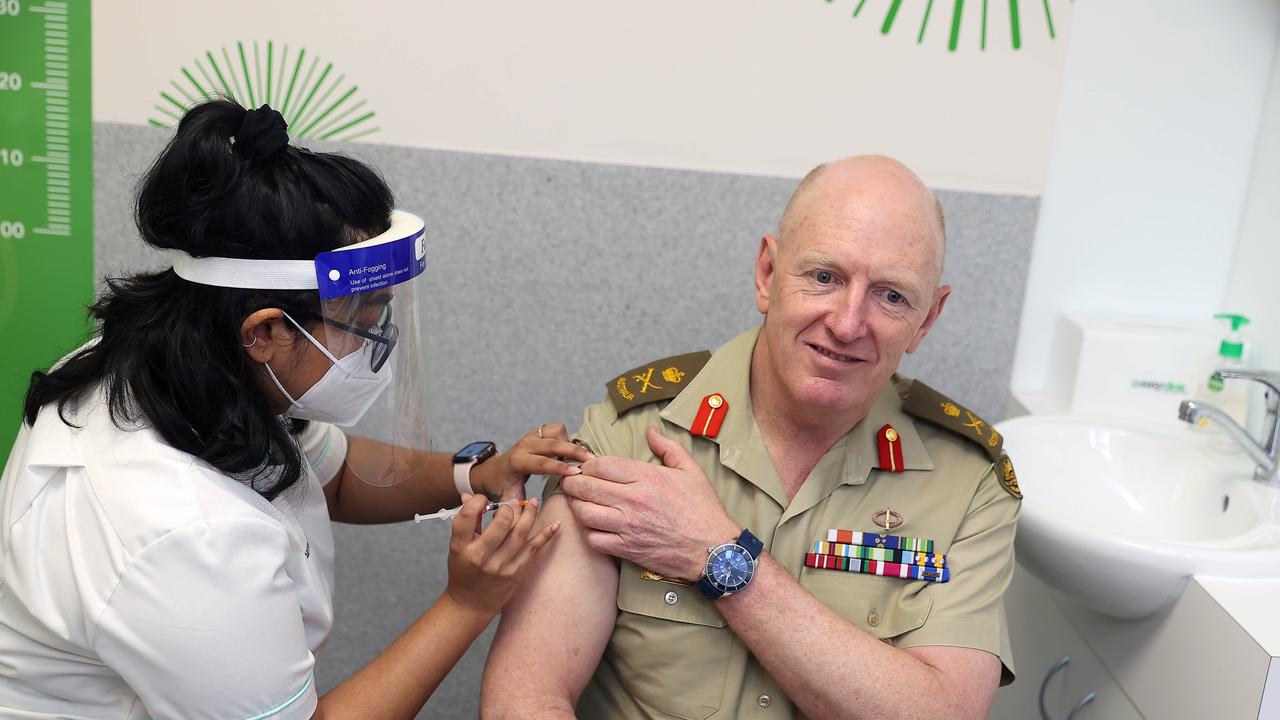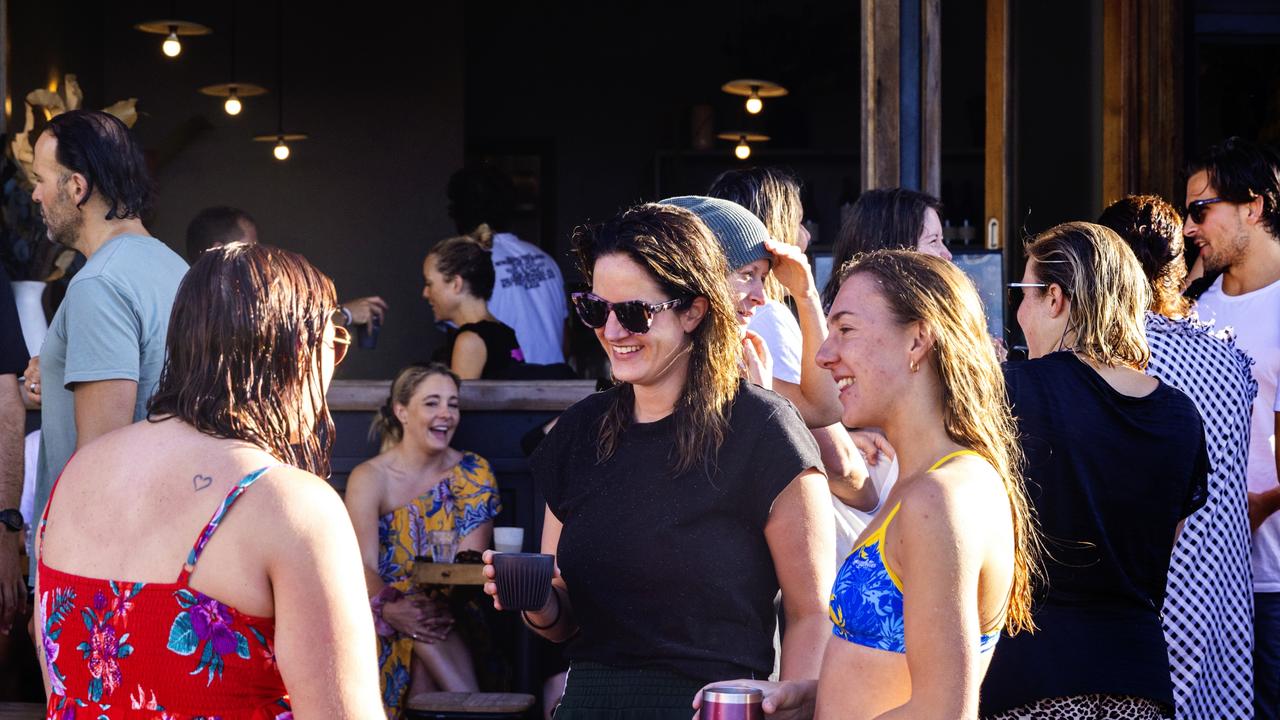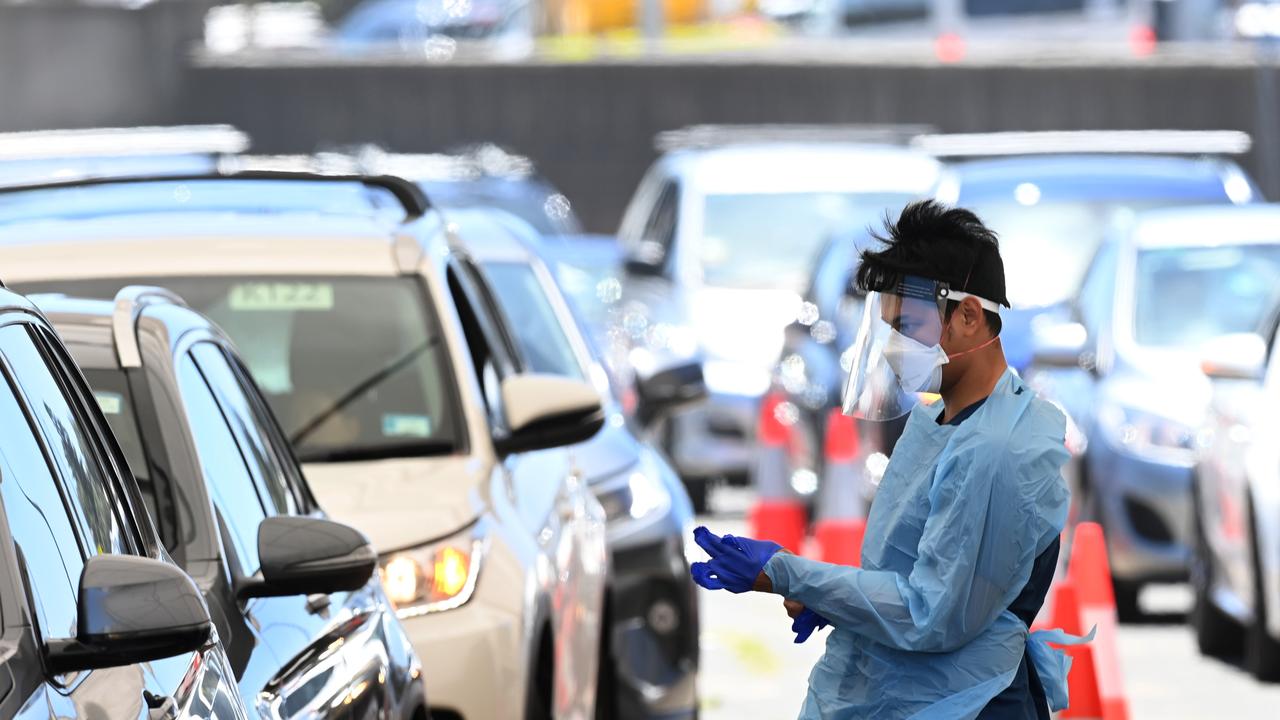‘No longer stable’: Experts’ major fears for NSW as Covid cases soar as ‘dangerous time’ approaches
As cases hit an alarming three-month high, experts have warned NSW is in “severe trouble”, with “multiple spreading events” on the horizon.
After weeks of blissfully low Covid case numbers, NSW has once again been plunged into uncertainty after recording a three-month high of 1360 new cases and one death on Wednesday.
It was a similar story in Victoria, with the state recording 1405 new Covid cases and three more deaths – the highest number of cases since December 2.
Those alarming spikes are being fuelled by outbreaks in pubs and clubs as restrictions ease and lockdown-weary Aussies embrace their new-found freedoms and celebrate the festive season.
But experts are now warning those celebrations may be premature, with NSW especially approaching a “dangerous time” with the state set to eclipse Victoria’s case numbers within days.
In a press conference on Wednesday, NSW Health Minister Brad Hazzard said modelling from the University of NSW shows the state “could” face a staggering 25,000 new cases per day by “the end of January”, and that authorities were “alert and cautious” given the “very substantial increase in the coronavirus” in recent days.
NSW Premier Dominic Perrottet defended: “As circumstances change, if there is a situation where we believe there’s substantial pressure on our health system, on our ICU, … we will tailor our response accordingly.”
“It is for me to look at the evidence that comes before us, not to pre-empt what may or may not happen.”
‘Multiple spreading events’
Melbourne University clinical epidemiologist Professor Nancy Baxter told news.com.au that until recently, case numbers were remaining relatively stable in both NSW and Victoria – but that was no longer the case.
“NSW is no longer stable, the outbreak is growing fuelled by Christmas parties, and that’s unlikely to stop,” she warned.
“Unfortunately, it’s now the season where families start to get together so we’ll have case numbers driven by office parties, and then people will be going to the Christmas table with grandma, so it’s a dangerous time.
“Christmas will bring multiple spreading events as it gets into households as everyone gets together, so it is challenging – and on top of that, we have the Omicron wildcard which is spreading in the community in NSW and is very, very contagious, even among people who have been vaccinated.”
Prof Baxter said it was only a matter of time before NSW case numbers surpassed Victoria’s, and that the prospect of easing face mask rules in both states was “frightening”.
“It is not prudent given the number of people with Covid in the community who are mixing and mingling,” she said, adding the easing of more restrictions in NSW today was “worrisome”.

“We’ve got many different factors coming together across the Christmas break and it’s very hard to predict what is going to happen, so relaxing rules and regulations like mask wearing takes away one of our least onerous restrictions and one of our most powerful ways of controlling the outbreak, so I’m not sure why you’d do that,” she said.
NSW in ‘severe trouble’
University of South Australia epidemiologist and biostatistician Adrian Esterman told news.com.au the effective reproductive number (Reff) for NSW had been hovering around or below 1 for many weeks, but was now at around 1.8.
That means a person with Covid is passing it to more than one person on average — an indication the outbreak is growing and there’ll be higher case numbers.
“Not only are cases going up, but also that effective reproductive rate is going up,” he said.
“that’s telling me we’re about to see another huge outbreak in NSW.”
He said he expected case numbers and hospitalisations would soon begin to “really ramp up”.
“I wouldn’t be at all surprised if NSW overtook Victoria in terms of case numbers,” he said, adding that while Victorian case numbers were also rising, they were “nowhere near” the rate in which NSW numbers were jumping.

“They are creeping up as opposed to NSW, which is chasing up at the moment,” he said.
“We’ve seen in Europe a lot of countries are now in dire straits … the problem is most European countries had ‘freedom days’ where they dropped all public health measures, and it should have been a warning that relying on vaccination alone doesn’t work, you have to retain some measures, which we did for some weeks.
“NSW and Victoria had very stable case numbers, but we are now starting to see what happens when you relax them. And not only are we relaxing just before Christmas, but also with Omicron on the horizon, which we know is incredibly transmissible.”
Prof Esterman said it was a mistake to ease restrictions now before the full impact of the Omicron variant was known.
“NSW might be in severe trouble in terms of case numbers and eventually there may be so many hospital cases may also go up,” he said.
“the way it’s going at the moment, it is doubling every week, and it’s a scary thought.”
Prof Esterman urged people to continue to wear face masks where possible and older people who had received the AstraZeneca vaccine should get their booster shot as soon as possible.
Outbreak ‘not going to go away’
However, infectious diseases expert Professor Peter Collignon of Australian National University said the recent surges were likely sparked by people gathering indoors during the recent wet weather and by end-of-year get-togethers, he believed case numbers would slowly start to drop from mid-January until May, before rising again over winter.
“On the bright side in NSW 90-plus per cent of over 16s are double vaccinated so it's a high number and a high level of protection against hospitalisation and death,” he said.
“While we are seeing more cases, they are mostly asymptomatic and mild.
“We need to put things into perspective because we are in a much better position now than we were a year ago.

“It’s going to be a problem, it’s not going to go away and new variants will spread … we can expect some hospitalisations and deaths, mainly in the unvaccinated, but it will be a lowish number, lower than most modelling said.”
Prof Collignon said he also believed NSW and Victoria would end up with similar case numbers soon.
Aussie research reveals booster shots key
The worrying surge in case numbers come as new Australian research from the Kirby Institute at UNSW has revealed just how essential booster shots will be in the fight against Covid.
According to the research, a booster dose with an existing mRNA vaccine has the potential to raise efficacy for Omicron to 86.2 per cent against symptomatic infection and 98.2 per cent against severe infection.
In a media briefing on Wednesday, the researchers said the evidence suggested Omicron would replace Delta as the primary strain of the virus, and that boosters were effective regardless of which vaccine you originally received.
They said the length of time between booster shots would depend upon the strain circulating in the community at a given time, but that it could be six months or a year between boosters moving forward.






